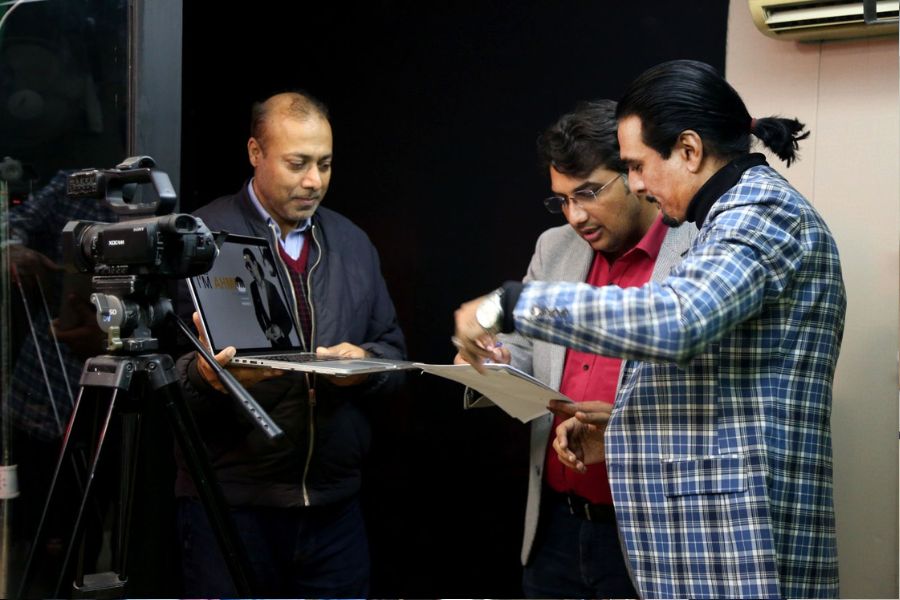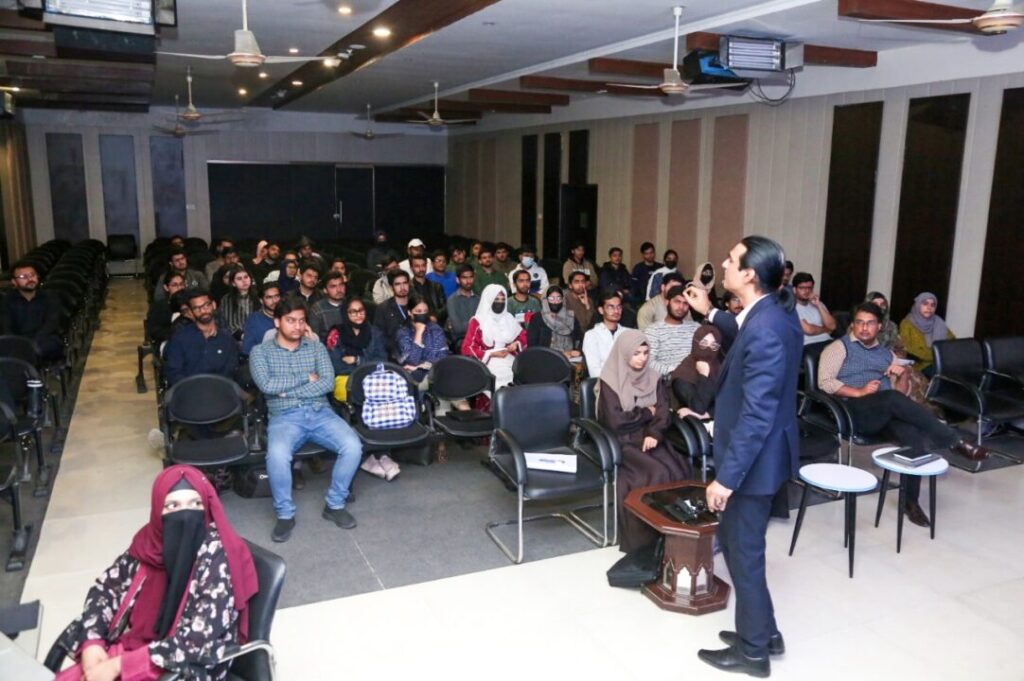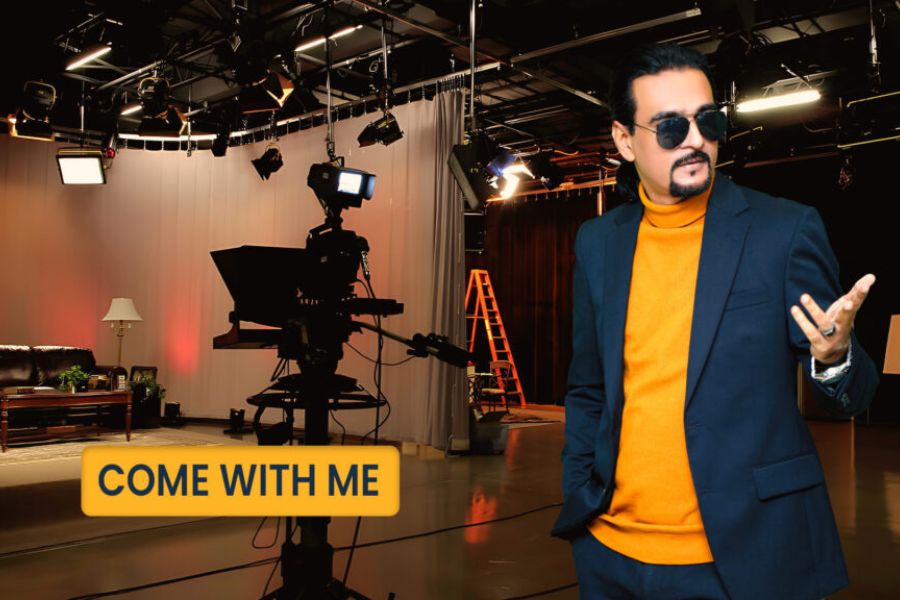Ahmad Afridi here, ready to guide you through the thrilling journey of becoming a filmmaker! Whether you’re looking at how to become a filmmaker or are just starting your filmmaking quest, buckle up for an exciting ride packed with insights, tips, and resources.
Step 1: Cultivate Your Storytelling Seed

Every cinematic masterpiece begins with a simple idea that blossoms into a compelling narrative. As a budding filmmaker, immerse yourself in diverse stories, both on-screen and off-screen. Draw inspiration from personal experiences, societal issues, or even imaginative realms waiting to be explored. Remember, there are no limits to creativity!
Immerse Yourself in Stories:
Movies and TV: Watch films across genres, from classic dramas to mind-bending science fiction. Analyze what makes them work, the characters, themes, and plot twists.
Books: Dive into different literary styles, from historical fiction to fantasy. Pay attention to how authors build worlds, develop characters, and keep you engaged.
Real-life experiences: Look for inspiration in your own life! Use personal anecdotes, cultural events, or historical moments as a jumping-off point.
Examples:
A filmmaker watches the classic coming-of-age story “Stand By Me” and is inspired to write a script about a group of friends growing up in a small town.
Explore Societal Issues:
Stories can be powerful tools for social commentary. Look at current events, historical injustices, or social anxieties that resonate with you and use them as a foundation for your narrative.
Examples:
Reading about a historical injustice sparks a fictional narrative reimagining historical events with a fresh perspective.
Your Imagination:
Don’t be afraid to create entirely original stories! Draw inspiration from your dreams, hobbies, or the desire to build a new fantastical world.
Examples:
A recurring dream becomes the basis for a surreal and dreamlike film.
Step 2: Master the Craft – Filmmaking for Beginners
Once your story seed is planted, it’s time to delve into the technical aspects of Filmmaking for Beginners. Familiarize yourself with the three crucial stages: pre-production, production, and post-production
Pre-Production
During this phase, lay the groundwork for your film. Develop a solid script, create storyboards to visualize scenes, scout locations that fit your narrative, and assemble a dedicated crew to bring your vision to life.
Script Development: This is where you finalize your script. You might polish the dialogue, ensure the story flows well, and make sure it fits within your budget and timeline.
Storyboarding: Storyboards are like comic strips that visually represent each scene in your film. They help you plan out camera angles, shot composition, and the overall flow of the scene. Here’s a helpful guide to storyboarding: storyboarding filmmaking on Boords.
Location Scouting: This involves finding the perfect places to shoot your film. You’ll consider factors like the setting required by the script, availability of permits and logistics like crew and equipment access.
Crew Assembly: This is where you build your film crew. You’ll hire key personnel like the director, cinematographer, sound recordist, and editor.
Production
Lights, camera, action! This is where the magic unfolds on set. Effective communication, attention to detail, and creative problem-solving skills are your allies during filming. Remember, a well-planned shoot leads to smoother production.
Post-Production
After capturing your footage, enter the realm of post-production magic. Editing, sound design, color correction, and visual effects refine your raw footage into a polished cinematic experience. Embrace creativity and attention to detail to elevate your storytelling.
Editing: This is the foundation of post-production. Editors meticulously assemble the footage, arranging it in a way that tells a compelling story. They weave together different takes, add transitions, and ensure a smooth flow throughout the film.
Sound Design: Sound design goes beyond simply adding music and dialogue. Skilled sound designers create a rich and immersive soundscape. This includes Foley sounds (those everyday sounds you hear, like footsteps or door creaks), sound effects (like explosions or car horns) and ambiance (background noises that set the scene).
Color Correction: Color correction plays a crucial role in establishing the mood and atmosphere of your film. Colorists manipulate the color balance, saturation, and other visual aspects to achieve a certain look. They can make a scene feel warm and inviting or cold and sterile, depending on the desired effect.
Visual Effects (VFX): VFX is the realm of movie magic! VFX artists create stunning computer-generated imagery (CGI) to enhance the visuals of a film. This could involve anything from adding fantastical creatures to creating elaborate explosions.
Step 3: Filmmaking Courses Online

As an experienced filmmaker passionate about nurturing talent in the industry, I am delighted to offer comprehensive filmmaking courses online and physically. Interested individuals can contact me for enrollment and further details.
Online and Physical Classes Available
Online Learning Embrace the flexibility of learning from anywhere with our meticulously designed online courses. Dive deep into scriptwriting, cinematography techniques, editing fundamentals, and more through engaging video lectures, practical assignments, and interactive discussions.
Physical Classes For those craving hands-on experience and personalized guidance, our physical classes provide immersive workshops and one-on-one sessions.
Conclusion
Absolutely, I’d be happy to help! It’s clear that embracing storytelling diversity and mastering technical aspects are key pillars for budding filmmakers. Through my guidance, we ensure a solid foundation in script development, storyboarding, location scouting, crew assembly, editing, sound design, color correction, and visual effects. With our online and physical courses, we provide accessible avenues for aspiring filmmakers to nurture their talents and embark on an exciting filmmaking journey. Let’s work together to bring your cinematic vision to life!
FAQs
1. Can anyone become a filmmaker without formal education?
Absolutely! Passion, dedication, and continuous learning are key.
2. How long does it take to learn filmmaking?
It varies based on your commitment and learning pace, but consistent practice accelerates your growth.
3. What benefits do the online courses offer to aspiring filmmakers?
Online courses offer flexibility in learning from anywhere, engaging video lectures, practical assignments, and interactive discussions, providing a comprehensive learning experience.
4. What equipment do I need to start filmmaking?
Start with a good camera, microphone, tripod, and editing software. Upgrade as you progress.
5. How important is networking in the film industry?
Networking opens doors to collaborations, mentorships, and opportunities. Build genuine connections and showcase your work.

